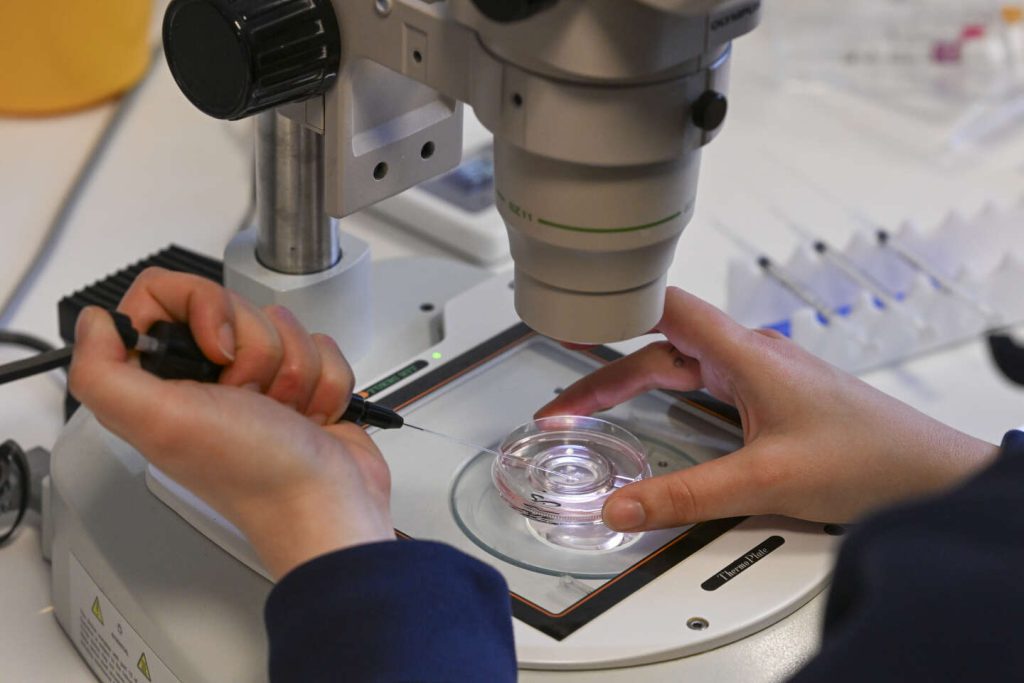In 2024, the President of France, Emmanuel Macron, proposed opening up egg freezing to private centers as part of a push for demographic revitalization. This technique, known as “oocyte self-preservation,” allows women aged 29 to 37 to preserve their fertility for personal reasons. Since the revision of bioethics laws in 2021, demand for this service has skyrocketed, overwhelming existing public and non-profit centers that previously offered this service.
The 2021 law expanded access to assisted reproduction techniques (ART) to all women, regardless of relationship status. It also allowed for the freezing of gametes without a medical reason for use in the future. Prior to this, egg freezing was only available to patients undergoing medical treatments that could affect fertility. The process involves a series of evaluations, stimulation with hormones, egg retrieval, freezing by vitrification, and storage in liquid nitrogen for potential future use through ART.
The surge in demand for egg freezing has led to long waiting times and overwhelmed fertility centers in France, particularly in the Paris region. The delays have been exacerbated by underestimating the demand, with nearly 20,000 requests for egg freezing but only 4,000 accommodated as of August 2023. The situation has prompted discussions around potentially allowing private centers to provide this service, a decision that would require legislative changes.
Women aged 35 to 37 make up the majority of those seeking egg freezing, with many citing uncertainty about their desire for children or focusing on personal factors rather than professional considerations. The increase in demand has highlighted the need for timely access to egg freezing services, as success rates in ART decline significantly after the age of 38. Despite its societal significance, egg freezing does not guarantee a future pregnancy and is more of a tool for managing reproductive choices.
The potential opening of egg freezing services to private centers raises questions about the regulation and costs associated with these services. While private involvement in fertility treatments is not new, concerns about the commodification of gametes have historically limited their role in this area. Ensuring equal access to care and maintaining oversight of private centers will be crucial considerations as discussions around expanding access to egg freezing continue in France. Overall, the rapid growth in demand for egg freezing reflects a societal shift towards increased reproductive autonomy and the need for innovative solutions to accommodate evolving fertility needs.


